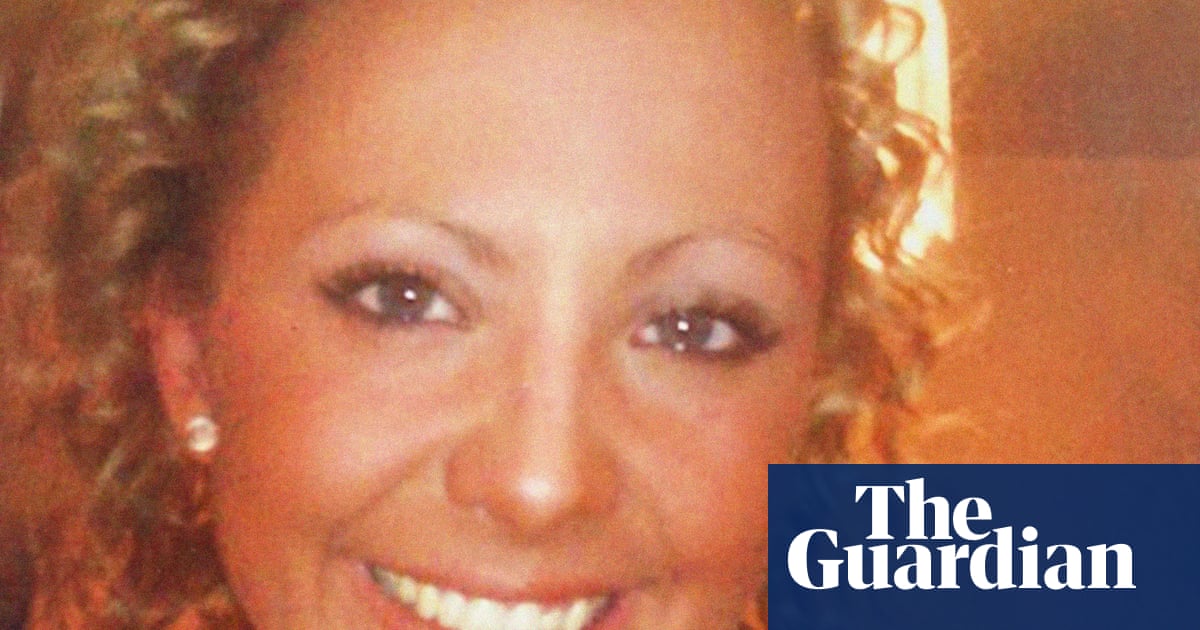
Domestic abuse charities and campaigners have urged police and prosecutors to reconsider criminal charges against a man who was found by a coroner to have driven his partner to suicide after an alleged decade of physical and mental abuse.
At an inquest into the death of 32-year-old Georgia Barter in Walthamstow, east London earlier this month, assistant coroner Dr Shirley Radcliffe recorded a verdict of unlawful killing.
“On or around 5 April 2020 [Georgia] had been assaulted by her long-term partner, who had been violent towards her on a number of occasions during their relationship,” Radcliffe said.
“There was clear evidence of her being an individual with a psychiatric history of post-traumatic stress disorder, anxiety and depression which had been exacerbated by her partner’s behaviour.”
The inquest heard that although her former partner, Thomas Bignell, had previously been arrested on several occasions, and had contact with at least four different police forces, he was never charged with any violent offences against Georgia.
After her death, Bignell was investigated again by the Metropolitan police, and a file was passed to the Crown Prosecution Service, but no charges were brought.
DCI Jim Mitchell, from the Met’s north-east command unit, said: “As part of an investigation following Ms Barter’s death, the Met investigated all available lines of enquiry and provided a detailed file of evidence to the Crown Prosecution Service (CPS).
“Ultimately, it was deemed there was insufficient evidence to pursue this case. We appealed this decision but it was upheld.”
It is understood that the force is now taking time to review the coroner’s findings. In order for the CPS to consider charging Bignell, a file of evidence would again have to be referred to it by a police force.
Domestic abuse campaigners have now urged the Met to ask the CPS again to look at the case, and for prosecutors to bring the case before a criminal court.
At an inquest, there is no criminal due process and nobody is convicted or acquitted. It has a different burden of proof to criminal courts, with findings made on the balance of probabilities, rather than the criminal threshold of beyond reasonable doubt.
Bignell has not been charged with or convicted of any criminal offences in relation to his alleged violence towards Georgia or her death.
Frank Mullane, the chief executive of Advocacy After Fatal Domestic Abuse, a charity that is supporting Barter’s family, said: “Although the standards of proof are different for the criminal court and the inquest court, nonetheless, the inquest concluded that Georgia was unlawfully killed.
“Therefore, if the CPS, subsequent to the inquest, decides not to review its decision not to bring charges, the family – and indeed society – is owed a clear explanation as to why.”
The charity is calling for a new law that would assist juries to recognise the causal relationship between domestic abuse and suicide, with the new offence attracting a similar sentence to manslaughter.
“These matters underwent rigorous scrutiny by experienced prosecutors,” a CPS spokesperson said previously. “Several offences were considered on our initial review of the evidence presented by police, but we concluded our evidential test for prosecution was not met.
“Following this, at the request of the family, two separate reviews of the case were conducted by specialist prosecutors who too concluded there was not a realistic prospect of conviction.”
Karen Ingala Smith, co-creator of The Femicide Census, said: “It has been long understood that one of the vital cornerstones of reducing – let alone ending – men’s violence against and abuse of women, is that the men who perpetrate that abuse must be held to account.
“Figures now suggest that women’s deaths by suicide are greater than those where a man directly acts to kill a woman. Until the criminal justice system catches up, hundreds of men who have caused women’s deaths are at liberty to subject woman after woman to levels of abuse that make them feel that the only escape is to end their lives.”
She added: “How can it be that despite the deaths of hundreds of women in the intervening years, there hasn’t bean a man found guilty of manslaughter by causing a woman’s suicide since 2017?
“With Georgia Barter, there was evidence of years of abuse, Georgia’s lifeless body and now a coroner’s finding that she was unlawfully killed. Yet Thomas Bignell walks among us.
“You can’t convince me that his current or next partner is not at risk. The failure of the CPS to hold him to account is inexcusable.”
Andrea Simon, director of the End Violence Against Women Coalition, said: “We’re pleased that the justice system is beginning to recognise the impact of domestic abuse in victims’ suicides, but we need to see perpetrators being held accountable.
“Male violence and abuse has a devastating and wide-reaching impact on victims’ lives, which can continue long after the relationship ends. In fact, when a woman leaves an abusive partner, we know that abuse can often escalate.
“It’s imperative that we don’t have a closed-off route to prosecution for suicides caused by domestic abuse. It must be recognised with the seriousness and gravity it warrants.”
Pragna Patel, from Project Resist, which runs a Suicide is Homicide Campaign for change in the criminal justice system, said: “Bringing these kinds of charges and these kinds of cases has proved incredibly difficult for many families, and actually many struggle to get the police investigation off the ground.
“Grieving, families, who are absolutely traumatised, searching for answers, are then having to cope with having to do their own investigations, which should be the responsibility of the state.”
Patel’s organisation is campaigning for all deaths where a person is suspected to have been a victim of domestic abuse to be treated as homicides at the outset.
“In Georgia Barter’s case, clearly, there’s been an unlawful killing ruling, which should lead to a thorough reconsideration on the part of the police and the CPS,” said Patel.
